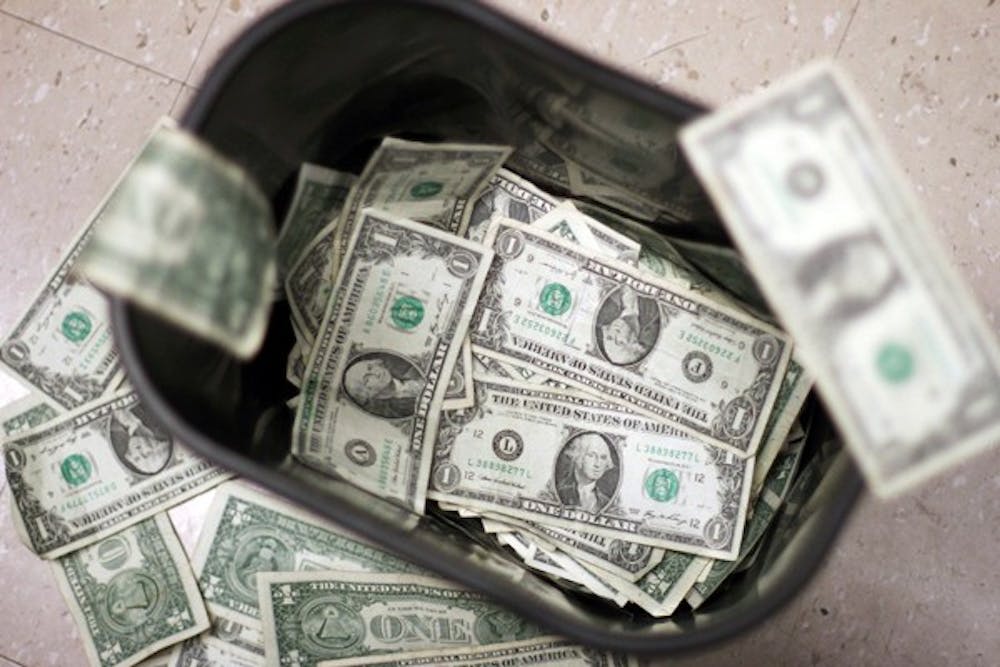U.S. Rep. David Schweikert from Arizona’s fifth district introduced the Currency, Optimization, Innovation and National Savings Act Sept. 20, a bill aimed at eliminating the $1 bill in favor of a $1 coin.
The COINS Act is estimated to save the government $184 million annually and $5.5 billion over the next 30 years by cutting waste, Schweikert said in a statement.
This waste stems from the three billon paper dollars that are pulled annually from circulation by the Bureau of Engraving and Printing, according to Schweikert’s statement in a press release. Schweikert argues that a coin stays in rotation for about 30 years, whereas a $1 bill stays in circulation about 42 months, according to the Bureau of Engraving and Printing.
“At a time when we are staring down a record-breaking $1.3 trillion deficit, any commonsense measure that cuts billions needs to be given serious consideration. That is exactly what the COINS Act will do and why I am introducing it,” he said.
Should the COINS Act be approved by Congress, the Federal Reserve Banks would be forced to stop printing the $1 dollar bill four years after the legislation goes into effect or when circulation of the $1 coins exceeds 600 million per year.
Schweikert’s COINS Act has received very little opposition thus far. In July, Rep. Jared Polis (D-Colo.) introduced a COINS Act of his own — the Cutting Out Inefficient and Needless Spending Act, which aimed to reform the Presidential $1 Coin Program.
“It’s absurd that the U.S. government is spending millions sitting on these presidential dollar coins that no one wants to use — and is still cranking them out,” Polis said in a July statement. “If we want to pay tribute to past presidents, we should reform the presidential coin program so that it’s not wasting our tax dollars.”
After Polis presented his bill to the House it was referred to a sub division, the House Committee on Financial Services, where it is still being revised.
The Government Accountability Office has done extensive research into the cost effectiveness of a COINS-like measure, and estimates that a single, recyclable dollar coin would last the lifetime of 17 paper dollar bills, according to Schweikert’s statement.
Cindy Cooper, general manager at Christie’s Cabaret in Tempe, was not concerned about the possible switch, despite working in an industry that deals almost entirely in $1 bills.
“I don’t think (the COINS Act) would affect the bar much,” Cooper said. “But it’d definitely affect the dancers.”
Thomas Bates, chair of the Finance Department at the W.P. Carey School of Business, had a similar view on proposed transition.
“I lived in Canada for a few years and they have coins for the one and two dollar bills. It’s the same in the UK,” Bates said. “I don’t think that (switching) radically changed convenience or how people handled money on a day-to-day basis. (The COINS Act) might be something we should explore.”
Schweikert, a strong advocate of budget-deficit reduction via responsible means, said the COINS act is a measure suited for helping to end the deficit.
“Washington needs to learn to save money to save our future for our children and grandchildren,” Schweikert said. “The COINS Act is a responsible way to trim our bloated deficit, and I encourage all of my colleagues to support this cost-saving legislation.”
Reach the reporter at doberhau@asu.edu
Click here to subscribe to the daily State Press newsletter.





